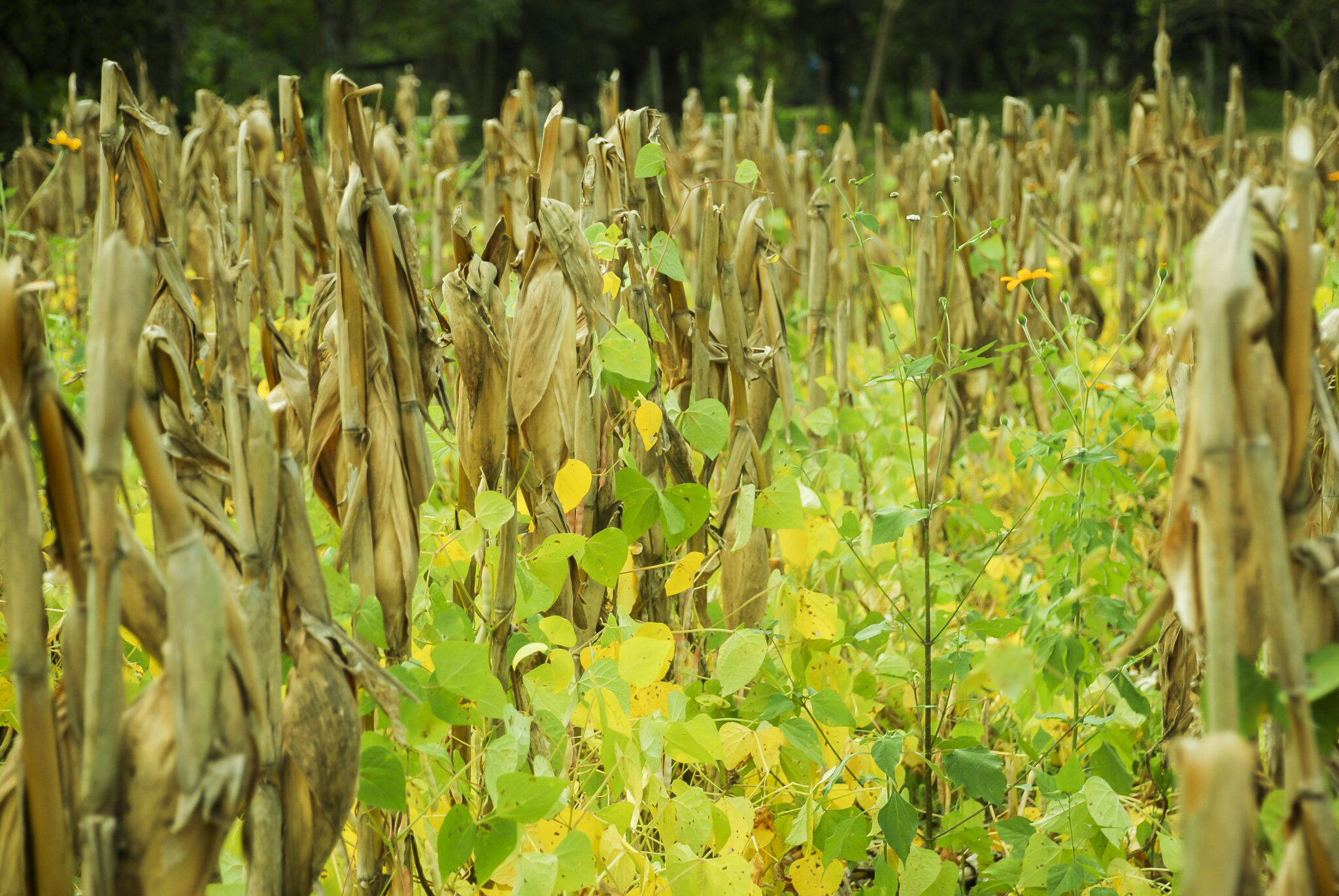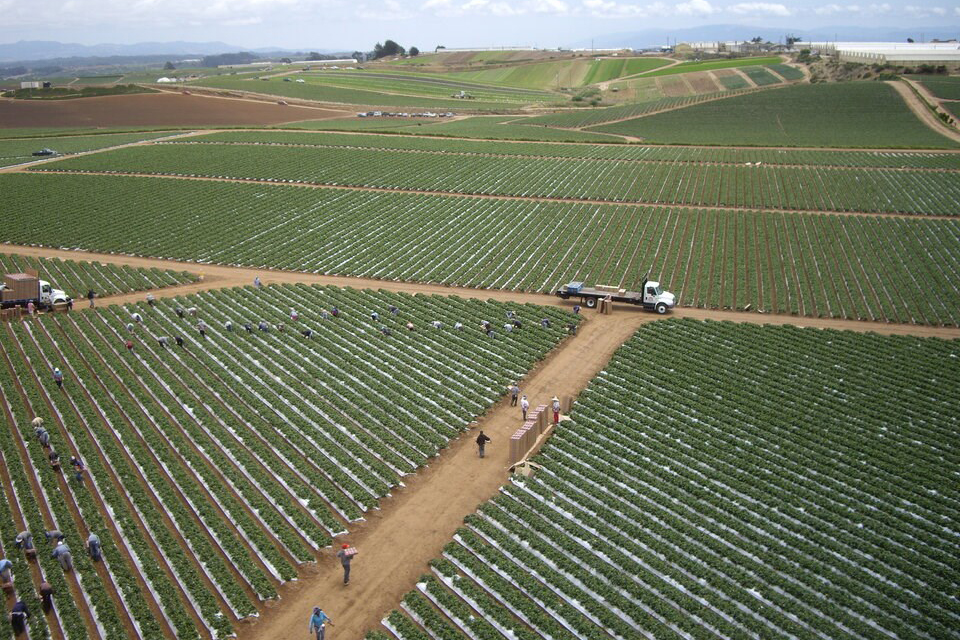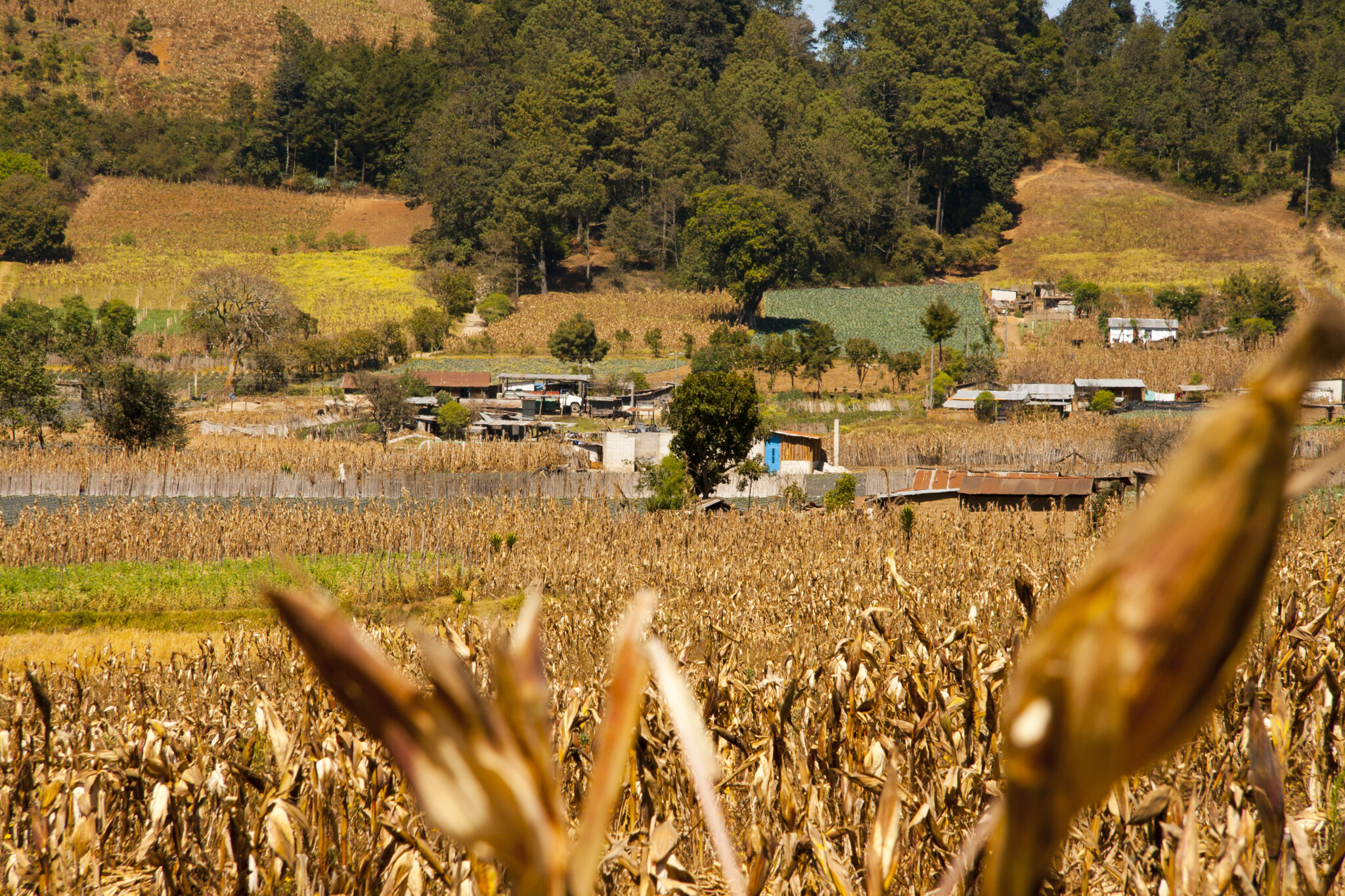From the Field
Diversified Agriculture is a Win-Win for Both People and the Environment
A new study in Science points to evidence that diversification practices maintain soil health and on-farm biodiversity while also increasing crop yields, food security, and human wellbeing.

Studies have shown that agroecological farming practices can bring a host of benefits to the environment of a farm. Hedgerows and flower strips provide biodiversity. Cover crops and compost improves soil health, which then increases water efficiency. Crop rotation builds up resilience to climate events and disease. A new study published this month in Science affirms these environmental benefits of diversified farming systems and takes a step further: Diversified agriculture benefits both the environment and people — potentially increasing crop yields while ensuring food security, food sovereignty, and human wellbeing.
In the twentieth century, the Green Revolution gave us a conventional food and farm system that simplified cropping systems to monocrops in order to prioritize high yields. This system of farming essentially separated the farm from the surrounding environment, which in effect made these farms susceptible to disease and often reliant on chemical inputs. This conventional farming system has also reduced peoples’ dietary diversity and access to land.
“To address these challenges, a new paradigm for farming systems is needed that focuses on providing food security and nutrition while minimizing negative environmental, health, and social impacts,” write the authors of the study. That new paradigm, the authors suggest, includes diversified farming.
The research synthesizes data from 2,655 farms across 11 countries. Some of these farms included simplified monocrops. Many of them employed a list of diversification strategies, including rotating crops and cover cropping, applying compost, including noncrop plantings like hedgerows and flower strips, conserving water through methods like contour farming, or mixing livestock and crops.

Simplified farming systems prioritize high crop yields but increase risk to disease and climate events. Photo courtesy of Claire Kremen

According to the study in Science, diversified farming systems support biodiversity and improve farm resilience to disease and climate, without necessarily compromising crop yields.
It’s often believed that scaling up efforts like cover cropping or hedgerow planting would come at the expense of crop yields, but the data in this study provides evidence that diversification practices don’t necessarily present this trade-off. Rather, diversified farms do not compromise farm production, and instead increase food security through dietary diversity, even as they harbor biodiversity and build up resilience to climate change. According to the study, a farm would be more likely to see these human/nature dual benefits when multiple diversification strategies are used.
Current agricultural policies, particularly the US Farm Bill, are typically locked into the conventional, simplified farming system. Structural factors like high rent, stringent and misguided food safety regulations, corporate consolidation, and other supply chain pressures currently make it difficult to scale the transition to a diversified agricultural system. Studies like this provide the evidence necessary for policies to address some of these structural barriers.
“The future of agriculture faces great challenges: large increases in demand for agricultural commodities must be met while at the same time minimizing agriculture’s negative environmental, health, and social impacts,” write the authors. “Our interdisciplinary analysis spanning a wide array of regions provides convincing evidence that agricultural diversification is a promising win-win strategy for providing social and environmental benefits.”
BFI’s founding Faculty Co-Director Claire Kremen, currently a professor at the University of British Columbia, is a senior author of the study. Other BFI affiliates and collaborators are also listed as coauthors, including Kathryn De Master of the Department of Environmental Science, Policy, and Management at UC Berkeley.
Click the links below to read more about this research:
- Vancouver is Awesome: Sustainable farming does pay off, B.C. scientists find
- University of Copenhagen: Major study reports that people and environment both benefit from diversified farming, while bottom lines also thrive
- CU Boulder Today: ‘Diverse’ agriculture benefits people and the environment at the same time
- Anthropocene: A landmark study delivers a clear verdict for diversified farmlands